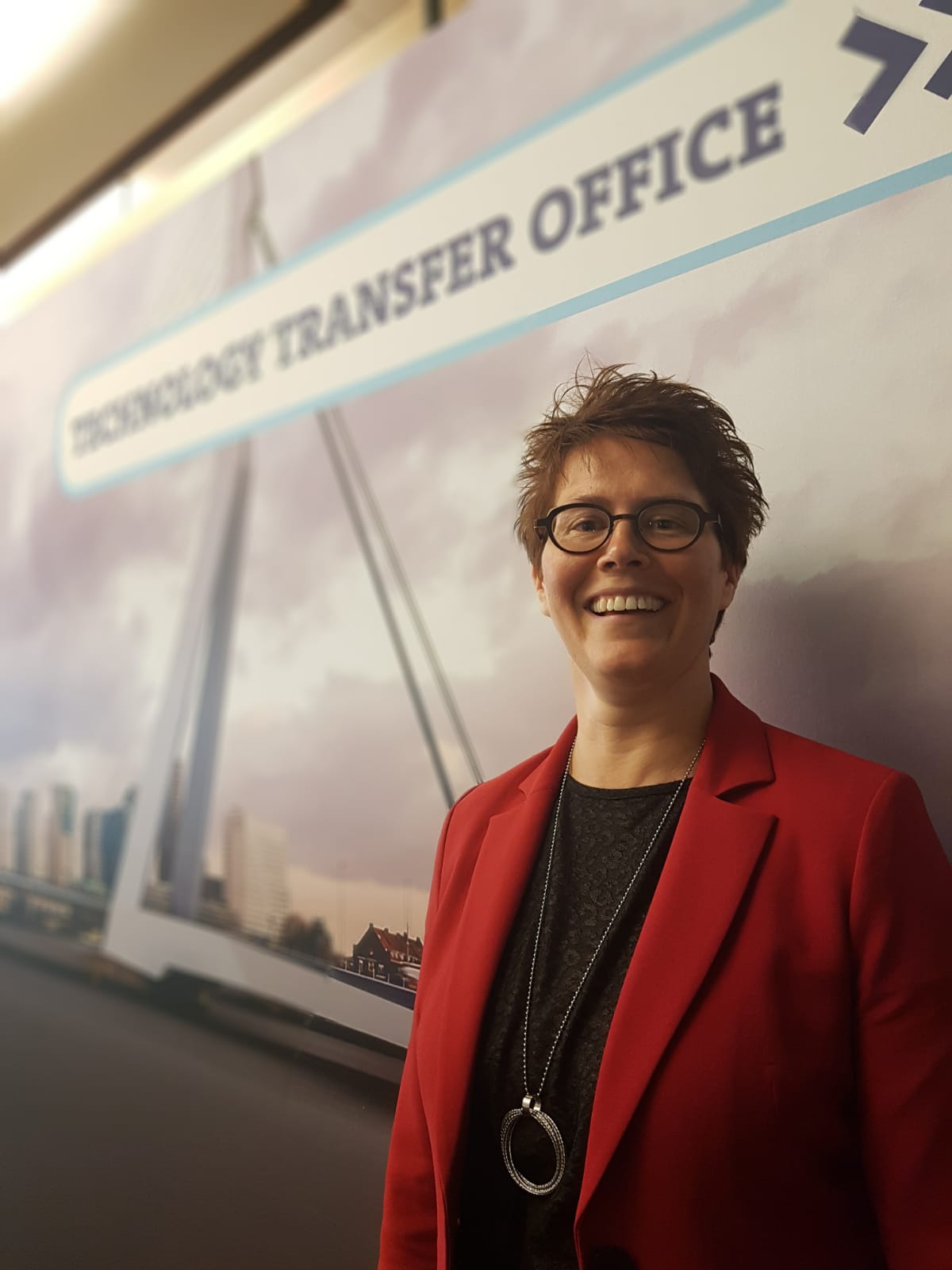We have over 100 technology transfer partners worldwide, each at a different stage of their partnership with Ximbio. We spoke with Debby from one of our new partners - the technology transfer office at the Erasmus Medical Centre in the Netherlands – to discover what they enjoy about working in tech transfer, why they chose to partner with Ximbio, and how the partnership is progressing so far.

What made you decide to work in tech transfer?
"I wasn’t happy in my last role and met a previous colleague, who mentioned that the Erasmus technology transfer office had an open vacancy. I completed a PhD in 2010 but had never heard of technology transfer before. I read the job description and felt that it was describing me; I love learning about science, but don’t want to do it personally anymore. I didn’t want to be in a lab but have an interest in keeping up-to-date with the latest innovations in sciences. I had worked outside of academia for around nine years, supporting pharma organisations and liked the commercial environment. To me working for a technology transfer office, is the best of both worlds – it’s a bridge between academia and commercial organisations - it gives you the opportunity to make connections, links and increase understanding."

What do you enjoy most about your role?
"I find it interesting to make sure academics and other people within the university know about the world outside academia and how it can help them. I feel like I can bring my commercial expertise into the university and really add value by teaching it to other people. I enjoy being able to create a connection between academia and companies. There is also an added value that technology transfer offices provide – the ability to make a difference, to get things out there to patients and help make an impact."

What do you find challenging about your role?
"The most challenging thing about my role is the diversity – I have around 30-40 projects in my portfolio that all need attention. I need to know enough detail for each project, which can be challenging at times. However, the diversity is also a positive of this role, as it keeps things interesting. A lot of juggling is required though, to spend enough time on each project to grasp the whole innovation. Another thing I found quite challenging to begin with, was the lack of speed. Things go very slowly in academic institutes and may take months. Coming from a commercial background, adjusting to this change of pace was a challenge, but after almost 4 years in the role, I have got used to it. Recently I had researcher, who approached me on Friday and was attending a conference on the Wednesday and needed their research patented before the conference. This was quite a tight turnaround and a bit of a challenge, but we managed it!"

What did you do with your reagents before you partnered with Ximbio?
"We had been actively commercialising some of our reagents for quite some time – we had contacted 5 or 6 pharma companies and life sciences reagent suppliers, but in the end, it didn’t work out. We were focusing on these reagents in particular, as the researcher was retiring. Most of the time we only passively commercialise reagents – so if we get requests for reagents, we act on them, but otherwise we don’t spend much time or energy on commercialising them. At the moment, we receive 3-5 requests on a yearly basis, some of which relate to reagents, we didn’t know existed!"

How did you find out about Ximbio?
"One of my colleagues had already been working on setting up a partnership with Ximbio and when she moved roles, I inherited the deal. Both our technology transfer office and Ximbio were very keen on completing the deal, especially as the main structure was in place. We were working to quite a tight deadline, as we wanted to get these particular reagents commercialised, before the researcher retired. We really appreciated members of the Ximbio team visiting our institute, as it made the range of services Ximbio could provide a lot clearer, particularly for my colleagues, who had not been involved in creating the partnership. We also appreciated how reactive and open Ximbio were, and how responsive they were to emails and phone calls. We will definitely be contacting them to discuss any future reagents as a first point of call."

Would you recommend the partnership to other technology transfer offices?
"We would recommend the partnership to other technology transfer offices at this stage. We have the feeling that it’s going to be a good partnership between Ximbio and ourselves. We are enjoying how the relationship works so far – particularly the personal element - and are looking forward to keeping it going. We are curious to see what the impact of the partnership will be on our reagents."

How do you see our partnership developing in the future?

Discover how we could work with your technology transfer office to support you in commercialising your reagents:
